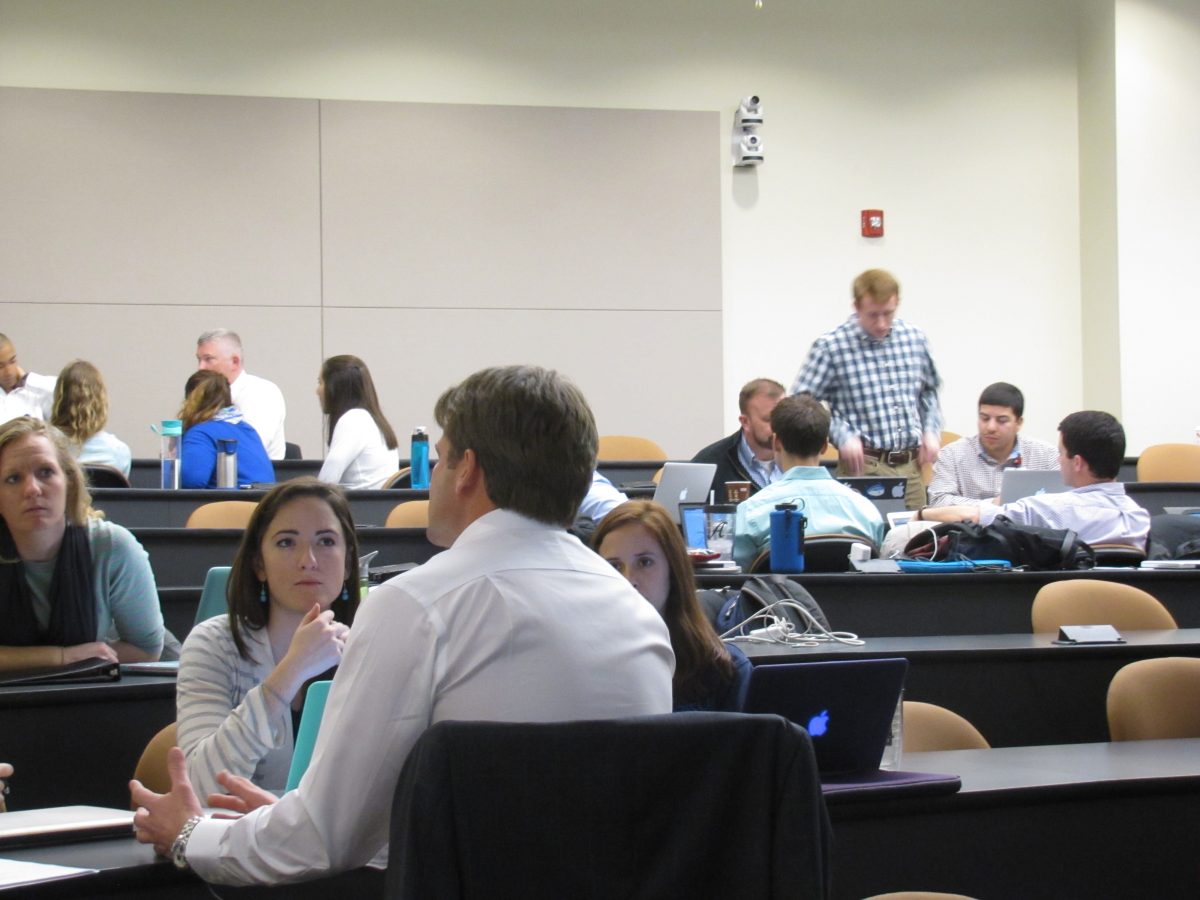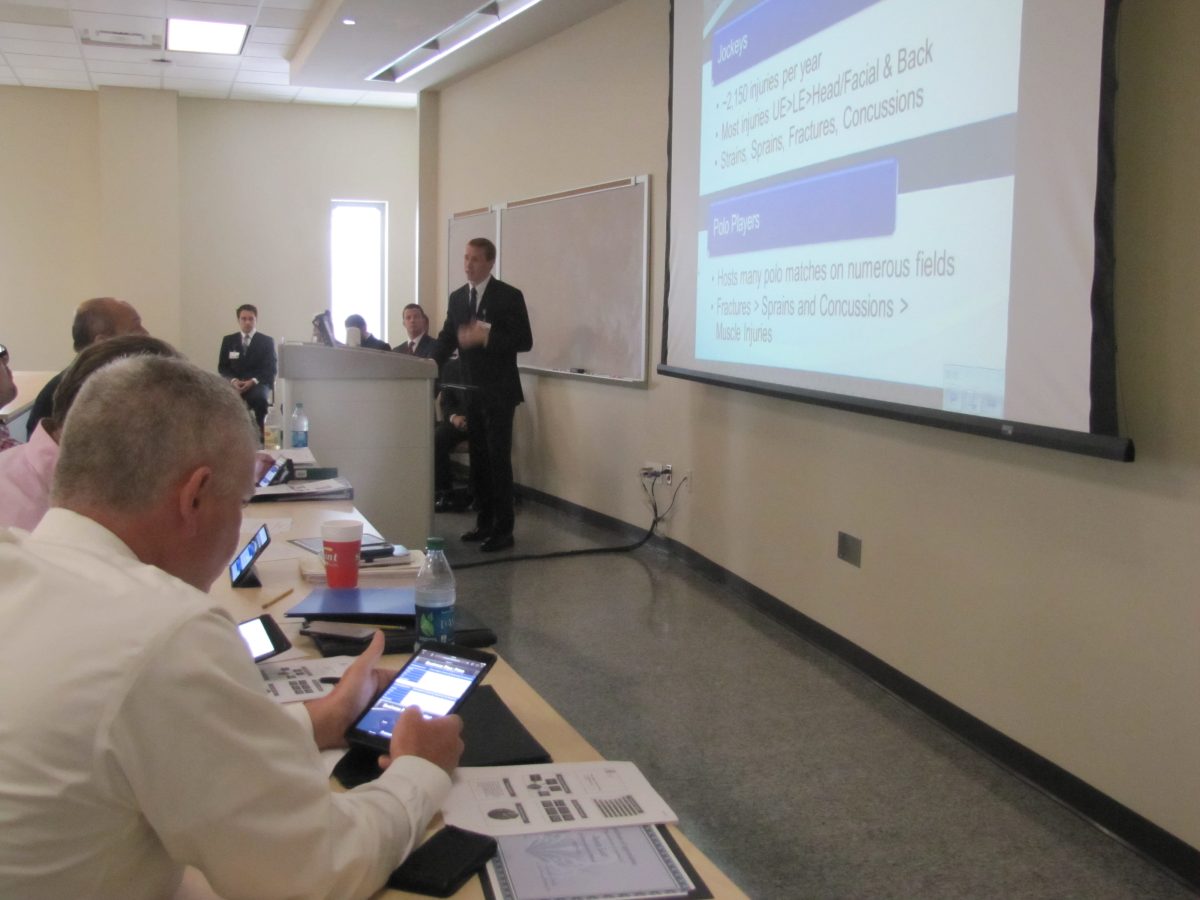When Dr. Debra Beazley, Assistant Professor, Department of Physical Therapy, looked at students graduating from the Physical Therapy Program, she identified a problem: physical therapy students were leaving with unimpeachable skills, but little understanding of how to effectively apply them in the business world. They had the know-how, but not the business acumen.
“These students will be some of the best physical therapists graduated in Georgia, but what do you do once you’re put in charge?” Beazley asked.
A class in the business of physical therapy already existed, but Beazley, who has an MBA and a PhD in business on top of her physical therapy degree, came in and tailored it in a way that gives students a dose of real-world experience.
“Out of 40 people, I had maybe two who had undergraduate business courses, so I’m having to take them from the very beginning and expand out,” she said. “Essentially, as a business professor, I did this, but we did it over 12 courses. Now, we’re doing it in four months in this class.”
The class brings students together with mentors from the community who help the small groups develop a business plan that will then be presented to Beazley, the class, and the collected mentors in a pitch resembling the television show “Shark Tank.”
“It definitely is a shark tank on the day they present, because all the mentors are here and they quiz them,” she said. “They ask hard questions, like ‘Go to page 30 of your business plan, and let’s talk about those numbers, because I want to know how you got to those numbers.’”
And there’s more than just pride and a grade on the line, Beazley said. Students may actually be producing viable community businesses they might eventually work in. Several of the mentors have the financial resources to actually take an appropriate business plan and turn it into a business.
While this is the first class to have the mentors guide individual groups throughout the process, previous classes have developed business plans that are actually being used in the community. According to Beazley, Christ Community Health Services is building out its clinic on Taylor Street, turning the second floor into a physical therapy area, and Doctors Hospital is opening a women’s pelvic health clinic. Both used class-developed business plans to guide the process.
Beazley carefully matched students to their mentors based on what the students told her they wanted to accomplish in life, and if the students’ body language during their initial mentor meeting was any indication, the matches were successful. The students were alert, focused, and engaged.
“When you look at the compendium of all the different ideas in here, we have really a mixture of everything that you could find in a therapy business – institutions, big box, corporate, small practice, high touch, big clinic with a fitness component,” she said. “We have a little bit of all of it.”
Another advantage, Beazley said, is that the business skills they develop will travel with them.
“Ninety percent of what we’re doing is a template you can take with you,” she said. “Once you’ve done a pro forma, you can do it anywhere. Once you’ve done a budget, you can do it anywhere. The 10 percent is their interest, which keeps them motivated and on track and passionate about what they’re doing.”
Some students want to own their own clinics; others want to work in a faith-based clinic, but Beazley said that even if the students don’t choose to develop their own business, getting this kind of inside view of a business will help them be better employees.
“My goal is that every student, regardless of whether they want to own a practice or be a manager in a business, has an appreciation for the complexity of the business,” she said. “You’re a more appreciative employee if you know the depth of commitment it takes to have the business successful.”
Beazley said she’d like to see GRU develop a management certificate tied into the MBA program for those who believe they want to go out and own a business.
 Augusta University
Augusta University


